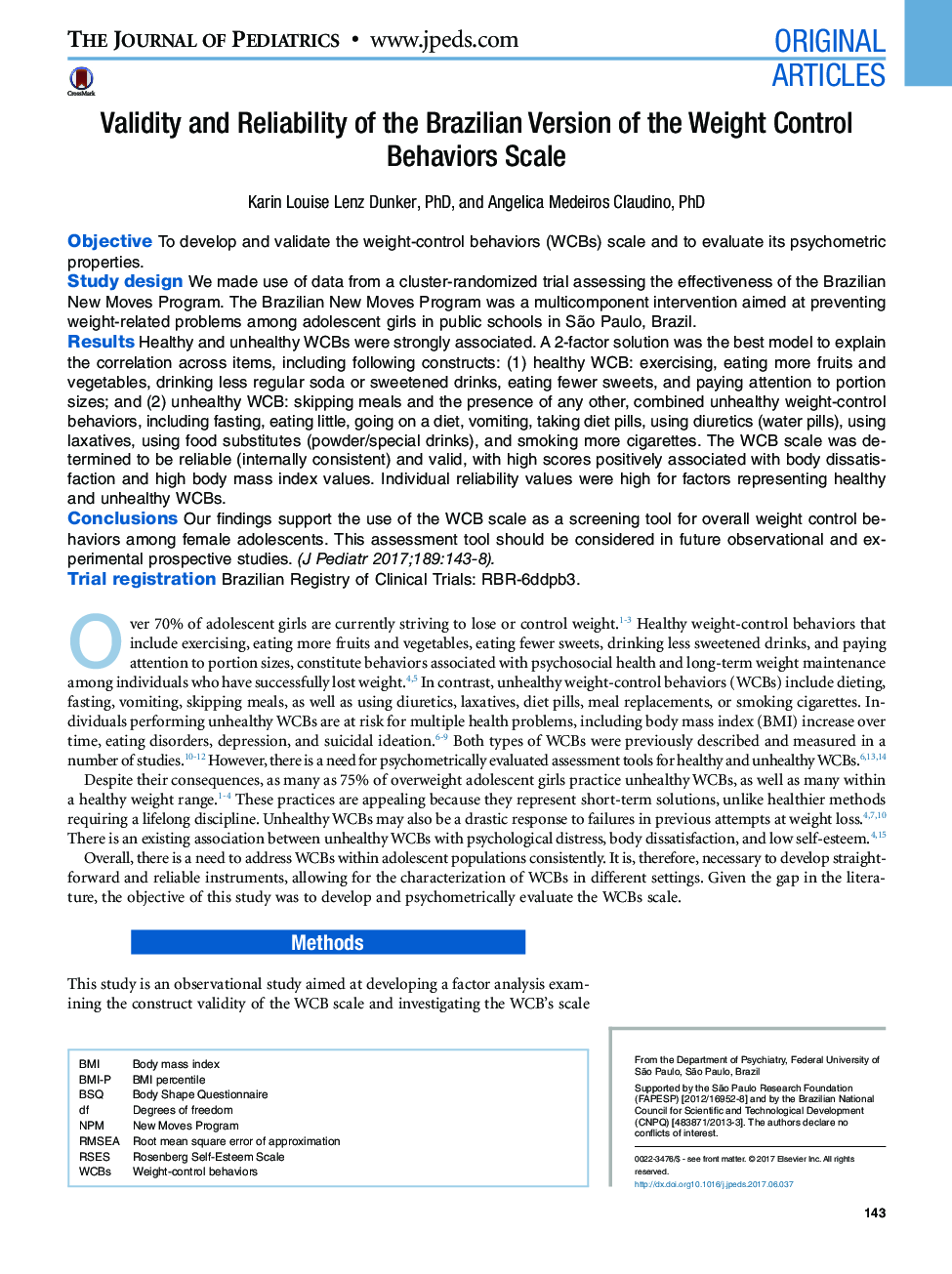| Article ID | Journal | Published Year | Pages | File Type |
|---|---|---|---|---|
| 5718894 | The Journal of Pediatrics | 2017 | 7 Pages |
ObjectiveTo develop and validate the weight-control behaviors (WCBs) scale and to evaluate its psychometric properties.Study designWe made use of data from a cluster-randomized trial assessing the effectiveness of the Brazilian New Moves Program. The Brazilian New Moves Program was a multicomponent intervention aimed at preventing weight-related problems among adolescent girls in public schools in São Paulo, Brazil.ResultsHealthy and unhealthy WCBs were strongly associated. A 2-factor solution was the best model to explain the correlation across items, including following constructs: (1) healthy WCB: exercising, eating more fruits and vegetables, drinking less regular soda or sweetened drinks, eating fewer sweets, and paying attention to portion sizes; and (2) unhealthy WCB: skipping meals and the presence of any other, combined unhealthy weight-control behaviors, including fasting, eating little, going on a diet, vomiting, taking diet pills, using diuretics (water pills), using laxatives, using food substitutes (powder/special drinks), and smoking more cigarettes. The WCB scale was determined to be reliable (internally consistent) and valid, with high scores positively associated with body dissatisfaction and high body mass index values. Individual reliability values were high for factors representing healthy and unhealthy WCBs.ConclusionsOur findings support the use of the WCB scale as a screening tool for overall weight control behaviors among female adolescents. This assessment tool should be considered in future observational and experimental prospective studies.Trial registrationBrazilian Registry of Clinical Trials: RBR-6ddpb3.
